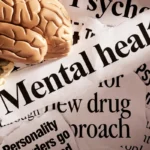Mental health has become a significant topic of discussion in recent years, reflecting a crucial aspect of our overall well-being. As society grows increasingly aware of its implications, it’s essential to understand why prioritizing mental health is vital for individuals and communities alike.
In today’s fast-paced world, people face numerous stressors daily. Whether it’s the pressure from work, family demands, or societal expectations, these elements can strain an individual’s mental health. Maintaining mental well-being is not merely about avoiding mental illness; it’s about achieving a balanced state of mind where individuals can thrive. Research has consistently shown that good mental health leads to increased productivity, better relationships, and overall improved quality of life.
The Role of Mental Health in Physical Well-being
It’s essential to recognize the direct link between mental health and physical health. Mental disorders, such as anxiety and depression, can manifest as physical symptoms, affecting energy levels, sleep patterns, and even immune functioning. For example, the World Health Organization has emphasized that healthy mental states contribute significantly to physical health outcomes. A well-balanced mind can enhance one’s ability to engage in physical activities, leading to an improved lifestyle.
Workplace Impact
The workplace is an area where mental health can significantly impact performance. Employees who struggle with mental health issues may find it challenging to concentrate, meet deadlines, or collaborate effectively with colleagues. As a result, businesses face increased absenteeism and turnover rates, which can hinder overall productivity.
- Increased Absenteeism: Employees with poor mental health may take more sick days, impacting project timelines.
- Higher Turnover Rates: Organizations may lose talented individuals who experience burnout or mental health crises.
- Decreased Productivity: Mental exhaustion often results in lower work quality and slower task completion.
Employers are taking note of this and are beginning to invest in mental health resources. Initiatives such as employee assistance programs, mental health days, and stress management workshops encourage workers to prioritize their mental health. As a result, companies that support mental well-being often see improved morale, engagement, and productivity.
Awareness and Stigma
Despite the growing awareness of mental health issues, stigma persists. Many individuals still feel ashamed or embarrassed to seek help. This hesitance can lead to prolonged suffering and deterioration of mental health. Efforts to normalize conversations about mental health have gained traction, encouraging people to speak openly about their experiences.
Engaging in community discussions and education can help dismantle stigma. Support groups, public campaigns, and mental health training in schools contribute to fostering an environment where individuals feel safe to express their struggles. The more society embraces mental health openly, the more individuals will seek help without fear of judgment.

The Impact on Youth
For younger generations, mental health issues are particularly concerning. Pressure to excel academically, social media influences, and a constantly connected lifestyle can take a toll on youth. Statistics indicate that mental health problems among children and adolescents are on the rise. The National Institute of Mental Health reports that nearly 20% of youth experience a mental health condition at some point in their lives.
- Anxiety disorders
- Depression
- Attention deficit hyperactivity disorder (ADHD)
- Behavioral issues
Having resources in schools, such as counselors and mental health workshops, can provide essential support for young people, guiding them through challenges and developing coping strategies.
The importance of mental health in today’s society cannot be overstated. Addressing mental health holistically within communities, workplaces, and education systems fosters a healthier society. By prioritizing mental well-being, we not only support individuals but enhance the fabric of our communities, creating a more compassionate and understanding environment for everyone.
Strategies for Cultivating Emotional Resilience
Life comes with its fair share of challenges, and our ability to bounce back from these hurdles hinges on our emotional resilience. Cultivating emotional resilience empowers us to face stress and adversity with a positive outlook. Below, we explore effective strategies to bolster emotional resilience and improve overall mental health.
Practice Self-Compassion
Rather than being hard on ourselves during tough times, self-compassion encourages us to treat ourselves with kindness. This approach is crucial for emotional resilience. When we acknowledge our struggles while still nurturing ourselves, we build a more supportive internal environment.
- Recognize your feelings without judgment.
- Speak to yourself as you would to a close friend.
- Keep a journal to record your thoughts and feelings.
Develop Strong Relationships
Connecting with others fosters a sense of belonging. Healthy relationships serve as a buffer against stress and provide a support network. Here are a few ways to deepen your connections:
- Make time for family and friends regularly.
- Participate in community activities or groups.
- Perform acts of kindness to strengthen bonds.
Engage in Mindfulness Practices
Mindfulness allows us to become more aware of our thoughts and feelings, promoting emotional regulation. This practice involves being present in the moment without judgment. Strategies to integrate mindfulness include:
- Meditation for even just a few minutes daily.
- Breathing exercises to center your thoughts.
- Mindful walking or yoga to connect with your body.
Solve Problems Effectively
Enhancing our problem-solving skills can significantly improve resilience. Instead of feeling overwhelmed, we can break down challenges into manageable steps. Here’s a simple approach:
| Step | Description |
|---|---|
| Identify the Problem | Specify the issue you’re facing clearly. |
| Explore Solutions | Brainstorm potential solutions or strategies. |
| Evaluate Options | Consider the pros and cons of each solution. |
| Take Action | Implement the chosen solution, one step at a time. |
Maintain a Positive Outlook
A positive mindset isn’t about ignoring challenges; it’s about approaching them with a sense of hope. Here’s how to cultivate a more optimistic perspective:
- Practice gratitude by listing three things you’re thankful for each day.
- Engage with uplifting content, whether books, podcasts, or videos.
- Visualize positive outcomes to challenge negative thinking patterns.
Embrace Adaptability
Flexibility in the face of change is vital for resilience. Life often deviates from our expectations, and learning to adapt can ease stress. To enhance adaptability:
- Stay open to new experiences and perspectives.
- Set realistic goals that can adjust based on circumstances.
- Accept that change is part of life, and focus on what you can control.
Prioritize Self-Care
Taking care of our physical and mental needs is essential. Regular self-care contributes significantly to resilience. Here are some self-care tips:
- Engage in regular exercise to boost mood.
- Maintain a balanced diet rich in nutrients.
- Ensure you get adequate sleep for recovery.
Emotional resilience isn’t something we are born with; it’s a skill we can develop over time. By practicing self-compassion, building strong relationships, engaging in mindfulness, and nurturing adaptable thinking, we prepare ourselves to face any challenges life throws our way. Implementing these strategies can lead to better mental health and a more fulfilling life.
The Role of Nutrition in Supporting Mental Well-being
The connection between what we eat and our mental health is becoming increasingly recognized in today’s health discourse. Nutrition plays a pivotal role in supporting mental well-being, and the foods we consume can significantly affect our mood, cognition, and overall mental health. A well-balanced diet rich in essential nutrients has been shown to have a positive impact on mental well-being, while poor nutrition can contribute to anxiety, depression, and other mental health issues.
One key aspect of nutrition that supports mental health is the consumption of omega-3 fatty acids. These essential fats, found in fish, flaxseeds, and walnuts, have been shown to reduce symptoms of depression and anxiety. A study by the National Institute of Health found that individuals who consume adequate amounts of omega-3s are less likely to experience symptoms of depression. these foods into your diet can be a simple yet effective way to promote better mental health.
Additionally, vitamins and minerals play a crucial role in brain function. For instance, B vitamins, particularly B6, B12, and folate, are essential for regulating mood and reducing feelings of anxiety. Foods rich in B vitamins include leafy greens, eggs, and legumes. Furthermore, zinc, which can be found in nuts, seeds, and whole grains, is known to support brain health and has been linked to reducing anxiety levels.
Foods high in antioxidants can also have a positive impact on mental well-being. Antioxidants combat oxidative stress in the brain, which can lead to mood disorders. Fruits and vegetables, particularly berries, dark chocolate, and green tea, are excellent sources of antioxidants. Regularly including these foods in your diet can help improve cognitive function and mood stability.
Furthermore, the gut-brain connection is an area of growing research that emphasizes the role of gut health in mental health. The gut microbiome influences our mental state through the production of neurotransmitters. For example, about 90% of serotonin, a key hormone that stabilizes mood, is produced in the gastrointestinal tract. A diet rich in probiotics can support gut health. Foods like yogurt, sauerkraut, and kefir can enhance the balance of healthy bacteria in the gut, contributing to better mental well-being.
Here’s a quick view of foods that can benefit mental health:
| Food Group | Key Nutrients | Benefits for Mental Health |
|---|---|---|
| Fatty Fish | Omega-3 fatty acids | Reduces symptoms of depression |
| Leafy Greens | Vitamins B6, B12, Folate | Regulates mood and reduces anxiety |
| Nuts and Seeds | Zinc, Magnesium | Supports brain health and reduces anxiety levels |
| Berries | Antioxidants | Boosts cognitive function and mood |
| Probiotic Foods | Live bacteria | Enhances gut health and serotonin production |
Moreover, hydration is often overlooked in discussions about mental health. Dehydration can lead to fatigue, anxiety, and depression. Drinking enough water throughout the day is crucial for maintaining energy levels and mood. Herbal teas can be a calming alternative, providing hydration while offering therapeutic benefits.
It’s essential to understand that nutrition is just one piece of the puzzle. While a healthy diet can significantly impact mental well-being, it should be combined with other lifestyle factors, such as regular physical activity, quality sleep, and social interaction. Together, these elements create a holistic approach to mental health.
Nutrient-dense foods into your daily routine promotes better mental health and empowers individuals to take control of their well-being. Small, consistent changes in diet can yield significant improvements in mood and cognitive function. It’s a testament to the age-old adage: “You are what you eat.” Focus on nourishing your body and mind to cultivate overall mental well-being.
Understanding the Impact of Social Media on Mental Health
The advent of social media has reshaped how individuals communicate, share information, and establish relationships. Platforms like Facebook, Instagram, Twitter, and TikTok have become integral parts of daily life for many, but their influence on mental health deserves careful exploration. It’s crucial to understand both the positive and negative effects of social media, as they continue to play a significant role in our overall well-being.
One of the most apparent benefits of social media is its ability to connect people across vast distances. Friends and family can maintain relationships despite geographical barriers. For many, these digital connections provide emotional support and a sense of belonging. Furthermore, social media can foster communities around shared interests, helping individuals feel less isolated.
Positive Impact of Social Media on Mental Health
- Support and Interaction: Many find solace in online groups that cater to specific issues, such as anxiety, depression, or other mental health challenges. Participation in these communities can offer validation and understanding.
- Access to Resources: Social media platforms serve as gateways to mental health resources, including articles, videos, and expert discussions that educate users on managing their mental well-being.
- Awareness and Advocacy: Mental health discussions on social media have increased public awareness, reducing stigma and encouraging individuals to seek help without fear of judgment.
However, it’s essential to recognize that the impact of social media isn’t universally positive. As much as it can foster connections, it can also negatively affect mental health. Scrolling through curated feeds can lead to feelings of inadequacy and comparison. Studies indicate that social media users often grapple with anxiety and depression, stemming from these unrealistic ideals.
Negative Effects of Social Media on Mental Health
- Comparison Culture: Users frequently compare their lives to the highlight reels of others, leading to low self-esteem and body image issues. This phenomenon can be particularly damaging during adolescence.
- Cyberbullying: Increased anonymity on platforms can escalate bullying, contributing to anxiety, depression, and a decline in self-worth.
- Reduced Face-to-Face Interaction: As users substitute digital interactions for in-person contact, feelings of loneliness can intensify, counteracting the intended benefits of social media use.
To illustrate the impact of social media on individuals’ mental health, consider the following statistics:
| Aspect | Percentage |
|---|---|
| Young adults (ages 18-29) who report feelings of isolation | 50% |
| Individuals experiencing anxiety related to online interactions | 40% |
| Users who engage in positive support groups | 60% |
| Individuals who regularly compare themselves to others online | 70% |
As users navigate the complex landscape of social media, it’s vital to adopt healthy usage habits. Setting time limits for social media engagement can help mitigate its potentially harmful effects. Additionally, individuals can curate their feeds by following accounts that promote positivity and mental health awareness.
Practicing digital detoxes, or taking breaks from social media altogether, also allows individuals to re-center themselves, focusing on real-life relationships and activities that enhance well-being. Engaging in hobbies and physical exercise outside the digital realm can bolster mental health and provide a necessary respite from online pressures.
Being mindful of the content consumed is equally important. Surrounding oneself with uplifting and inspiring content can help counteract negativity and foster a more supportive online environment. In turn, users are likely to experience a more balanced perspective on their own lives and feelings.
Understanding the dual nature of social media’s influence on mental health is essential for navigating our increasingly digital world. By fostering healthy online habits and engaging with positive communities, individuals can maximize the benefits while minimizing the risks associated with social media use. Striking this balance is crucial for enhancing mental health in a society where digital interaction is the norm.
Effective Therapeutic Approaches for Managing Anxiety and Depression
Mental health challenges like anxiety and depression continue to affect millions of individuals worldwide. It’s crucial for those experiencing these issues to find effective therapeutic approaches that resonate with their unique needs. Various methods can aid in managing symptoms and improving quality of life. Here, we explore several effective strategies that have been shown to help in alleviating anxiety and depression.
Cognitive Behavioral Therapy (CBT)
CBT is one of the most researched and commonly used therapeutic techniques for anxiety and depression. This method focuses on identifying and changing negative thought patterns and behaviors that contribute to emotional distress. By examining how thoughts influence feelings and behaviors, therapists guide clients in developing healthier patterns.
- Focus on the present: CBT aims to help individuals solve current problems rather than delving deeply into the past.
- Structured sessions: Therapy sessions are usually 12 to 20 sessions long and involve setting specific goals for treatment.
- Skills development: Clients learn coping strategies that can assist them in managing their symptoms outside of therapy.
Mindfulness and Meditation
Mindfulness and meditation practices have gained popularity for their mental health benefits. These techniques allow individuals to stay grounded in the present moment, helping reduce anxiety and depressive symptoms.
- Stress reduction: Mindfulness practices lower stress levels, which can lead to decreased symptoms of depression and anxiety.
- Emotional regulation: Regular meditation practice improves one’s ability to manage emotions and fosters a greater sense of self-awareness.
- Accessible techniques: Simple breathing exercises and guided meditations can be done anywhere, making them easy to incorporate into daily routines.
Interpersonal Therapy (IPT)
IPT focuses on improving interpersonal relationships and social functioning to help alleviate mental health symptoms. This approach is particularly effective for people whose depression or anxiety stems from issues in personal relationships.
- Relationship focus: By improving communication skills and resolving conflicts, clients often find relief from emotional distress.
- Support systems: IPT emphasizes the role of support systems in recovery, encouraging clients to strengthen their social networks.
- Time-limited treatment: Typically lasting around 12 to 16 weeks, IPT provides focused treatment that can lead to significant changes in mood and outlook.
Medication Management
For some individuals, therapy alone might not be sufficient. Medications can play a critical role in managing anxiety and depression symptoms. These may include:
| Medication Type | Common Examples |
|---|---|
| Antidepressants | SSRIs, SNRIs, Tricyclics |
| Anti-anxiety medications | Benzodiazepines, Buspirone |
| Mood stabilizers | Lithium, Lamotrigine |
It’s important to work closely with a mental health professional to determine the appropriate medication, dosage, and duration of treatment.
Exercise and Physical Activity
Regular physical activity is a powerful tool for fighting anxiety and depression. The benefits of exercise extend beyond physical fitness; they greatly influence mental well-being as well.
- Endorphin release: Exercise boosts endorphin levels, leading to improved mood and decreased feelings of anxiety.
- Routine development: Developing a consistent exercise regimen can provide structure and routine, which are beneficial for mental health.
- Social connections: Participating in group activities or classes can foster social connections, reducing feelings of isolation.
Creating a Holistic Treatment Plan
In many cases, a combination of therapies yields the best results. A holistic treatment plan tailored to individual needs might integrate the therapeutic approaches outlined above. By combining medication, therapy, exercise, and mindfulness techniques, individuals can build a comprehensive strategy to manage their anxiety and depression effectively.
Ultimately, the journey toward improved mental health is personal and multifaceted. It’s essential to explore different avenues to find what works best for you. Seeking the guidance of professional mental health resources can provide invaluable support as you navigate this path.
Conclusion
Understanding and prioritizing mental health in today’s fast-paced and often chaotic society is more crucial than ever. The challenges we face, from increased stress levels to the pervasive influence of social media, underline the need for a collective emphasis on mental well-being. Through our discussions on the importance of mental health, we not only acknowledge its significance but also pave the way for meaningful changes that can foster better emotional resilience among individuals.
Cultivating emotional resilience is highlighted as a key strategy in managing the pressures of modern life. By developing tools to navigate through emotional turbulence, individuals can enhance their ability to bounce back from setbacks and maintain a positive outlook even in adverse situations. Techniques such as mindfulness practices, emotional regulation, and self-care routines play a critical role here. Each strategy offers unique benefits, whether it’s through meditation, journaling, or simply taking time to relax. These practices equip people with the inner strength required to handle challenges and uncertainties.
Additionally, nutrition emerges as an often overlooked player in supporting mental health. The connection between what we consume and how we feel cannot be underestimated. A balanced diet rich in essential nutrients can significantly influence mood and cognitive function. Specific foods, such as those high in omega-3 fatty acids, antioxidants, and vitamins, are linked to reduced symptoms of depression and anxiety. By making deliberate choices about what we eat, we can bolster our mental resilience and improve our overall well-being. Encouraging healthy eating habits, therefore, becomes an integral part of any comprehensive mental health strategy.
Social media, while a powerful tool for connection, also introduces a double-edged sword in regards to mental health. Users can find themselves in a cycle of comparison, which often leads to feelings of inadequacy and low self-esteem. Understanding this impact is essential. It’s crucial for individuals to curate their online experiences, limit exposure to negative influences, and engage with platforms mindfully. Taking breaks from social media or participating in community-oriented online discussions can help mitigate negative effects and promote a balanced perspective. Healthy online engagement can foster supportive communities that enhance personal growth and emotional well-being.
On the therapeutic front, effective approaches to managing anxiety and depression continue to evolve. Traditional therapies such as cognitive-behavioral therapy (CBT) remain effective, yet innovative methods, including art therapy, mindfulness-based stress reduction, and group therapy, have shown promise in treating mental health struggles. Each approach offers unique insights, allowing individuals to connect with their emotions in a way that feels right for them. The growing acceptance of these varied therapeutic methods reflects a more holistic understanding of mental health and acknowledges that there is no one-size-fits-all solution.
Addressing mental health is not merely about identifying and treating illness; it’s about fostering a culture that promotes well-being and resilience. Society needs to advocate for environments that prioritize mental health education and support, both in schools and workplaces. By normalizing discussions about mental health and dismantling stigmas, we create a community that encourages individuals to seek help and support one another.
To foster mental health on an individual level and in society at large, we must adopt a proactive approach. This includes investing time and resources into self-care, engaging in healthy eating practices, and employing therapeutic strategies tailored to our unique needs. Families and communities can also play a pivotal role by fostering open dialogues about mental health and encouraging one another to prioritize well-being.
As we navigate the complexities of mental health in today’s world, our collective responsibility is to support one another and recognize the profound interconnection between mental and emotional health. Whether through enhanced emotional resilience strategies, nutritious eating habits, informed use of social media, or effective therapeutic approaches, we all have a part to play. By embracing these principles, we can build a healthier, more compassionate society where mental well-being is valued and nurtured. Remember, mental health isn’t just an individual endeavor—it’s a communal journey that requires understanding, action, and empathy from all of us. Together, we can create a culture where mental health thrives and everyone has the opportunity to flourish.
“Mental health has gained significant attention recently. According to the World Health Organization, mental health is a critical component of overall well-being.”
Curious to dive deeper ? Check out these authoritative resources for expert insights and proven strategies:
National Institute of Mental Health (NIMH):
- Website: NIMH – Mental Health Information
- Summary: The NIMH offers detailed information on various mental health conditions, treatment options, and ongoing research in the field.
American Psychological Association (APA):
- Website: APA – Mental Health
- Summary: The APA provides articles, resources, and guidelines on mental health, addressing topics such as anxiety, depression, and coping strategies.
Mental Health America (MHA):
- Website: Mental Health America
- Summary: MHA focuses on promoting mental health awareness and early intervention, offering screening tools, educational resources, and advocacy information.
Centers for Disease Control and Prevention (CDC):
- Website: CDC – Mental Health
- Summary: The CDC covers mental health statistics, public health strategies, and resources for mental health promotion and disease prevention.










